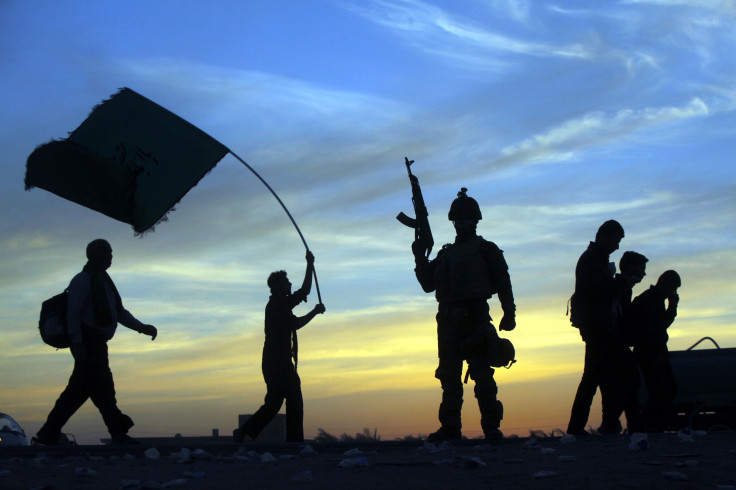The US Dream Of A Unified Iraq Is Still A Dream, Despite Cooperation To Fight ISIS Insurgency

The U.S. dream of an Iraq that unifies its Shiite majority and Sunni and Kurdish minorities, surpassing the religious and ethnic strife that has riven the country since the American-led 2003 invasion, seems close as Iraqis close ranks in the face of the Islamic State group's advance. Senior U.S. officials have said in recent weeks that the country was on a path toward inclusiveness. But the reality, experts say, is that Iraqi unity is a thin veneer, and the country is more fractured today than ever.
"Maybe if you think about it in the long term, this is the beginning to the unity solution," said Judith Yaphe, a professor at George Washington University's Elliot School and an expert on Iraq. "But it is much too early to tell."
The only tangible cooperation that exists today is between the Kurdish regional authorities in the north and the central government in Baghdad. Leaders of Iraq's central government and its semiautonomous Kurdish region settled their long-running dispute last month regarding the export of crude oil, in a deal that means Baghdad will receive the revenue from the oil sales and in turn resume payments to the Kurdistan Regional Government.
"[The deal] is good for the country's economy but even more for its unity and stability," U.S. Secretary of State John Kerry said at a Senate Foreign Relations Committee hearing.
But even the landmark oil deal does not indicate unity, Denise Natali, a senior research fellow at the National Defense University in Washington, said. "This is the best they can do right now," Natali said. "There is no choice. The Kurds are broke and they need a deal."
On Tuesday Qubad Talabani, the deputy prime minister of the Kurdistan Regional Government, said that the agreement with Baghdad was only temporary. For the past six months Iraqi Kurdistan has been exporting oil via a pipeline that runs through Turkey to the Mediterranean port of Ceyhan -- without Baghdad's consent, as required by law. Dozens of tankers have picked up some of the approximately 120,000 barrels a day that Kurdistan is producing from oil fields near Kirkuk, but the final sale of that oil to buyers had been stalled as Baghdad and the Kurds disputed its ownership.
Under the new deal, Iraqi Kurdistan is required to export 550,000 barrels of oil per day through Iraq's national oil company. In exchange, the Kurds will receive their 17 percent share of the national budget, something Baghdad had cut off during the dispute. It remains unclear if or how the revenue generated from the oil exports would be split between Baghdad and Iraqi Kurdistan.
"This deal does not affect the larger issues like land and internal boundaries," Natali said, adding that agreeing on those boundaries will require input from the Sunnis in the north. "These are the kinds of things that need to play out," she said. "Iraq is likely going to remain a weak entity until boundaries internally can be determined."
The insurgency by the Islamic State group, whose self-proclaimed caliphate includes large chunks of west and north Iraq, has de facto split Iraq into several entities, each with its own militia.
Iraqi Kurds and the central government both want to stop ISIS from taking over more of the country, but they field separate military units to fight the Sunni militant group. There is little communication between the Kurdish military, known as the peshmerga, and the Iraqi security forces, which are loyal to the Shia-dominated government in Baghdad.
In addition to those two groups, there are several other factions fighting ISIS. Sunni tribesmen in the west of Iraq are forming their own militias, with U.S. support, to fight ISIS; other Sunnis are fighting against the government but independently from ISIS. And Baghdad relies heavily on Iranian-backed Shiite militias to protect the capital. There is virtually no cooperation between the separate entities.
"The only way they are going to survive this is by working together," Yaphe said.
President Obama has stressed the same idea, saying in a speech in August: "We continue to call on Iraqis to come together and form the inclusive government," he said. "All Iraqis need to unite to defend their country."
© Copyright IBTimes 2024. All rights reserved.





















